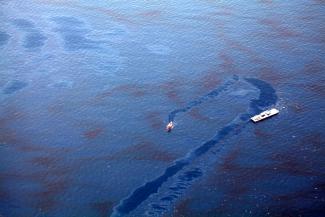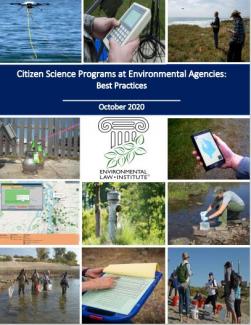COVID-19 and Gulf Resiliency



President Joseph Biden’s March 30 announcement to spend $2 trillion fighting climate change, decarbonizing the economy, and creating jobs did not lack detail—the White House “summary” ran 25 pages with 79 subheadings, each containing numerous subproposals. Among these big ideas about offshore wind development, digital grid infrastructure, and green job training programs is a proposal that could have come from any administration over the last five decades: redeveloping blighted industrial properties to improve outcomes for distressed, disadvantaged communities.

Environmental justice (EJ) in federal policy to date has mostly involved conducting more public participation—a “process without substance,” as EJ pioneer Charles Lee puts it. In this month’s issue of ELR—The Environmental Law Reporter, Lee offers a road map for government agencies to effectively address EJ issues by developing an understanding of disproportionate impacts based on rigorous, holistic data, and operationalizing this analysis with a spectrum of policy actions.

The Deepwater Horizon exploded in the Gulf of Mexico more than 10 years ago. Yet hundreds of individuals across the Gulf coast are still battling BP in court for damages related to a host of ailments arising from exposure to oil, dispersants, or both. A recent order out of the Northern District of Florida (N.D. Fla.) granting BP’s summary judgment motion as to one set of plaintiffs may be a sign of things to come. Regardless of this ruling, the sheer volume of these cases may occupy dockets for months or years.

Let me begin this blog by stating that I support the Joe Biden Administration’s effort to address environmental injustices in this nation. I just wish that it had taken a legislative-focused path to help bring about profound changes in the lives of tens of millions of Black and Brown and poor people.

President Donald Trump’s policies appear to be at odds with the environmental justice (EJ) movement, but little work has been done to test their true impact. Trump proposed or completed rollbacks of nearly 100 environmental regulations, repeatedly rejected calls for action on climate change, and continuously sought to cut funding for the U.S. Environmental Protection Agency, including for environmental justice. These regressive policies seem likely to harm poor and minority communities most, especially following what many saw as promising progress under President Barack Obama. But how are these policy changes actually impacting the cause of EJ? How can we assess actual progress toward EJ’s multifaceted goals?

Environmental agencies are increasingly transforming their approach to citizen science, from viewing it as a source of data primarily for education and awareness to a potential source of concrete value for their programs. Although this relationship has existed for some time, the emergence of new technologies, an increasingly aware public, and the rise of unexpected pollution events has reinvigorated the way agencies and the public work together.

National Environmental Policy Act (NEPA) administration is in a serious tangle, given new Trump Administration regulations, the long-standing procedures administered by scores of federal agencies, and inconsistent environmental review obligations depending on various dates. This knot, like the legendary knot of King Gordias, is not easily unraveled. But it is not impossible.

Earlier this year, the Environmental Law Institute hosted a webinar on cultural fire management—just prior to yet another devastating fire season across the West Coast of the United States. The discussion highlighted the millennia of Indigenous peoples’ sustainable forest management practices, drawing a sharp contrast with the consequences of over a century of federal fire-suppression policy, now exacerbated by climate change. That discussion now prompts a deeper conversation about options available to Indigenous tribes for regaining their stewardship role over forest resources on their traditional lands.

The principles of climate justice state that those who are least responsible for greenhouse gas emissions, both globally and in the United States, are the ones most affected by the adverse effects of climate change. In this month’s issue of ELR—The Environmental Law Reporter, environmental justice pioneer Barry Hill examines a variety of legal doctrines that states can use to litigate fossil fuel companies to address climate injustices, using Rhode Island v. Chevron Corp. as a model.